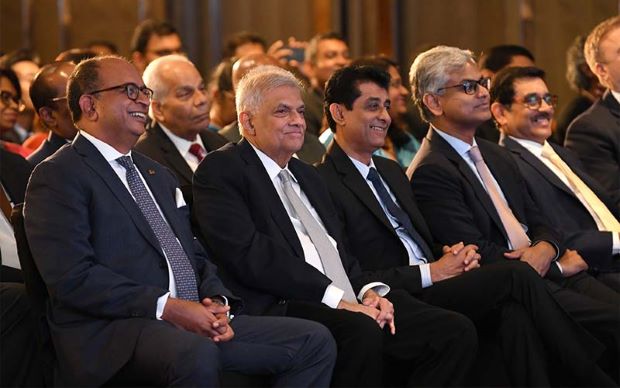Sri Lanka in deep talent drain amidst currency crisis
COLOMBO – Sri Lanka businesses are facing a drain of talent, top business executives said as the country suffers the worst flexible exchange rate crisis in the history of its intermediate regime central bank and people lose hope.
“We are seeing a trend towards migrating,” Krishan Balendra, Chairman of Sri Lanka’s John Keells Holdings told an economic policy forum organized by the Ceylon Chamber of Commerce (CCC).
“We have seen an impact mainly on the tourist hotels side, quite an exodus of staff (migrating) to countries we have not seen in the past,” he said, elaborating, “We have seen people go to Scotland, Ireland. It has usually been the Middle East and the Maldives. Australia seems like a red hot labour market at the moment.”
Sri Lanka’s rupee collapsed from 200 to 360 to the US dollar after macro-economists printed money to suppress rates.
Sri Lanka operates a ‘flexible exchange rate’ where errors in targeting interest rates are compensated by currency depreciation, especially after the 1980s.
Classical economists and analysts have called for the power to take away mis-target rates and dual anchor conflicting monetary regimes to prevent future crisis.
Currency crises are problems associated with flexible exchange rate set by the central banks and are absent in hard pegs and clean floats.
“Something new we are seeing is that older people, even those in their 50s, are looking at migrating,” Balendra said.
Businesses are trying to retain talent as real wages collapse.
Claiming that as businesses they see some stability returning, he said based on past experience growth were likely to resume, and they were communicating with the workers.
“We have a degree of conviction that the economy would get better,” he said, claiming this to be the stability phase, with things slated to get better going forward and business should see good growth.
He said chasing for compensation was just not practical and they were not trying to do that, especially if people are looking to immigrate. “But what we can do is show the career opportunities in the backdrop of the situation that people would rather stay here because its home,” he added.
Sri Lanka unit of Heineken says it is also trying to convince workers not to leave, with more success.
“We are all facing the effects of brain drain and it’s not just the lower levels… What we are doing is a balance of daring and caring,” Maud Meijboom-van Wel – Managing Director / CEO, Heineken Lanka Ltd told the forum.
“Why I say daring is, you have to be clear in what you can promise people, when you make promises you have to walk the talk. So with the key talents and everyone you need to have the career and talent conversations,” she said.
Claiming to be a bit lucky because she was running a multinational company, she said the career path at Heineken goes beyond Sri Lanka. “So, I can say if you acquire certain skills here, you can move out of here and then come back too, that is a bit easier for me but it starts with having a real open conversation with walking the talk – dare and care,” she explained.
-economynext.com



Comments are closed, but trackbacks and pingbacks are open.